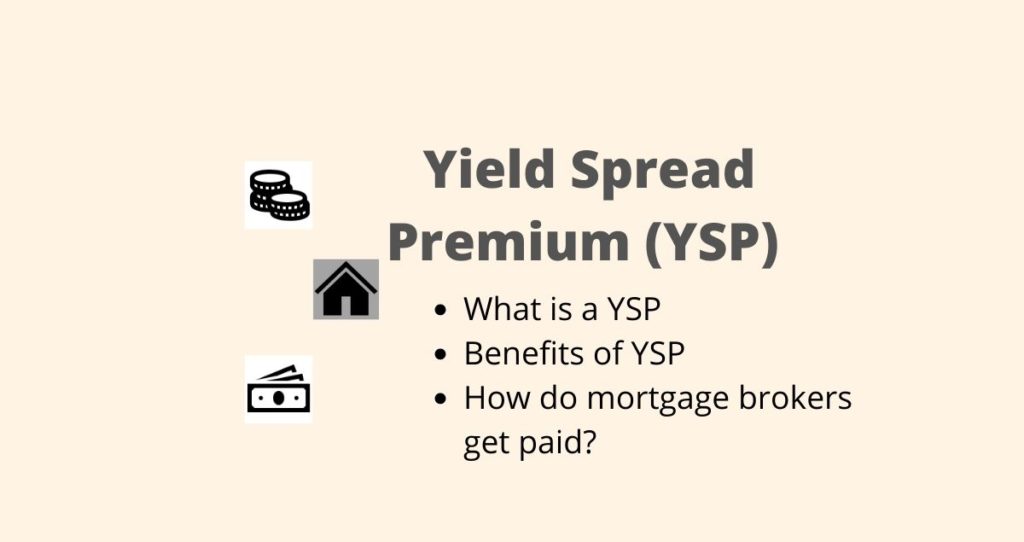What is Yield Spread Premium (YSP)?
A yield spread premium is a money paid to mortgage brokers by lenders for selling a mortgage to a borrower at an interest rate that is higher than the par rate value, according to Investopedia. This compensation is paid in the form of mortgage points, yield spread premium, or both and it is usually paid at the closing.
Mortgage borrowers usually pay an upfront cost that covers the origination fee, broker fee, and additional closing fees. An origination fee alone can range from 0.5% to 1% or more of the loan amount, according to Eloan. Paying an origination fee and related closing costs (3-5% of the loan amount, according to Bank of America), can be too expensive for most borrowers.
For this reason, some borrowers agree to sign-up for mortgages with yield spread premiums which lowers their upfront costs.
Lenders compensate mortgage brokers who lower borrowers’ upfront costs in exchange for a higher interest rate. In other words, the broker’s fee is waived for borrowers who lock in a higher interest rate, according to SmartAsset. This is because all or a portion of the broker’s fee will be covered by the lender.
>>MORE: Par Rate: Get The Lowest Mortgage Rate
A yield spread premium means that a borrower pays a rate that is higher than the market rate or par rate. This sounds bad for the borrower. However, the borrower can benefit from paying less in closing costs. As noted by Erate, the yield spread premium reduces the closing costs, which in return, helps low-income borrowers to afford buying houses.
Paying low money in closing costs is not a free pass for borrowers. Mortgage lenders still make their money over time from interest collection. This is because the borrower pays an interest that is higher than the market rates.
>>Related: Mortgage Refinance: How To Refinance A Mortgage?
how how do mortgage brokers get paid?
Mortgage brokers do not work for banks or lending institutions. Instead, they are the middlemen who help borrowers and their lenders to come to mutual terms for the loans and mortgages.
Since brokers work on behalf of borrowers and lenders, they get compensated by either borrowers or moneylenders.
If the borrower compensate the mortgage broker, the broker fee will be:
- Upfront: The borrower will pay this fee out of pocket or
- Added to the mortgage amount: This fee will be added to the loan amount that a borrower qualifies for.
On the other hand, if a lender has to pay a mortgage broker, the payment will be based on terms and conditions that bind the broker and the lender.
How much do mortgage brokers make?
The compensation of mortgage brokers is usually a percentage of the loan amount. As noted by Realtor, mortgage brokers make between 1-2% of the total mortgage amount. This fee can be different from one broker to another based on location and the size of the loan.









